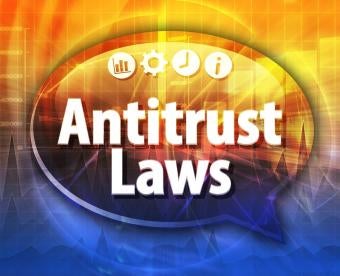While there is general consensus in the antitrust community that antitrust enforcement should be focused on protecting competition, there is disagreement about how active antitrust enforcement should be. During the 2016 presidential campaign, candidates and general commentators suggested that more vigorous antitrust enforcement would reduce concentration and help spur economic growth.
So the nominations of the Trump Administration’s top antitrust enforcement officials were even more highly anticipated than usual. Unfortunately, this administration has been slower in making its choices. The top antitrust slot at the Department of Justice and three of the five commissioner seats at the Federal Trade Commission are empty. The result is lingering uncertainty about the direction of antitrust policy and, perhaps, slowed reviews of pending mergers.
Here is what we know about the empty slots as of this writing.
Department of Justice. Media reports last week indicated that Makan Delrahim will soon be named assistant attorney general in the Antitrust Division. Delrahim served as a deputy AAG in the Antitrust Division during the Bush II Administration and, before that, as chief counsel for the Senate Judiciary Committee. From 2008 until earlier this year, he was at a law firm in California. Early in January, he joined the White House Counsel’s Office as deputy assistant to the president and deputy counsel to the president, where he has been focusing on court selections, including the Neil Gorsuch nomination for the U.S. Supreme Court.
The other AAG candidate frequently mentioned is Josh Wright. Wright is a prolific antitrust writer and currently a professor at the Scalia Law School at George Mason University. He served as a commissioner on the Federal Trade Commission from 2013 to 2015 and espoused an “evidence-based” approach to antitrust enforcement that sometimes led to dissents to FTC actions. Wright is said to have assisted the new administration on its thinking about the FTC and met with President Trump.
Federal Trade Commission. Only Republican Maureen Ohlhausen and Democrat Terrell McSweeny are still serving. Because no more than three FTC commissioner seats can be filled from one party, Republicans can fill only two of those empty seats. (The third would be filled with a non-Republican, presumably a choice of Senate Minority Leader Sen. Chuck Schumer that the administration deems acceptable.)
The other question is who will become FTC chairman. Shortly after the inauguration, the Trump Administration named Ohlhausen as acting chairman, a move it could make unilaterally. Elevating Ohlhausen to chairman or naming a new commissioner as chairman requires Senate approval.
News reports claim that the two candidates are Ohlhausen and Utah Attorney General Sean Reyes. Ohlhausen has spent most of her career at the FTC, including a stint as a commissioner since 2012. Like Wright, Ohlhausen has issued some sharp dissents as a commissioner and has repeatedly stated that the FTC should exhibit “regulatory humility” before intervening in the market. As acting chairman, she quickly established the Economic Liberty Task Force to “advance economic liberty issues with a particular focus on occupational licensing restrictions.” She also named long-time antitrust lawyer and former Coca-Cola chief antitrust counsel Tad Lipsky as acting director of the bureau of competition, the part of the FTC covering the antitrust laws.
Reyes was elected Utah’s attorney general in 2014, and media reports describe him as “a political rock star.” Reyes joined with other Republican attorneys general in challenging various Obama Administration actions. In particular, last year Reyes sent a letter to the FTC urging it to re-open an investigation of Google. Media reports indicate that companies that have criticized Google in the past have lobbied the administration on Reyes’s behalf.
For the one open seat that cannot be filled with a Republican choice, published reports indicate that Lillian Salerno of Texas is under consideration. Salerno served in the Agriculture Department from 2012 to January 2017 and worked on rural development issues. Earlier, she held positions in the healthcare sector.
If these two federal antitrust agencies are seen as insufficiently active, state attorneys general could step in. State officials have been active antitrust enforcers for years, either joining with their federal counterparts or on their own. Multiple media reports have speculated that state AGs, whether alone or in groups, could pursue investigations and lawsuits if they think the new federal antitrust enforcers should be doing more.
Until these nominations are made and the selections approved by the Senate, companies involved in – or potentially involved in – investigations or mergers will have to live with the uncertainty about how the new administration will treat their matters.
Top 5 Antitrust Issues Facing Companies in U.S. Today
#2 Competitor Collaboration: Top 5 Antitrust Issues Facing Companies in U.S. Today
Top 5 Antitrust Issues Facing Companies in the U.S. Today: #3 Pricing
Merger Review: Top 5 Antitrust Issues Facing Companies in the U.S. #4


 i
i


